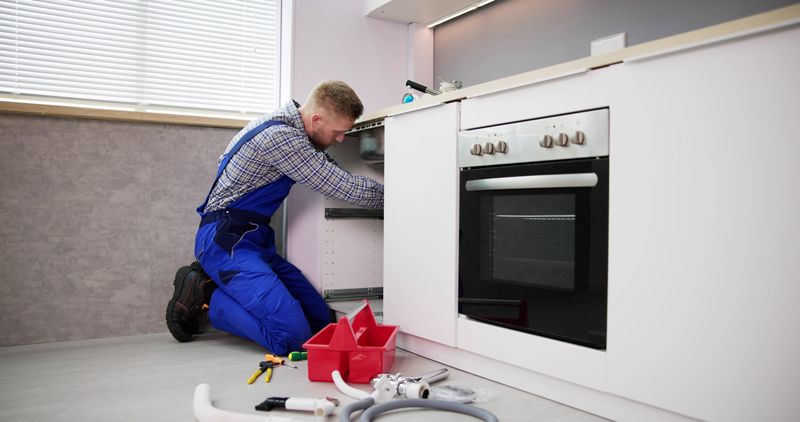New Homeowners: Tips on How to Handle Bathroom Plumbing
New Homeowners: Tips on How to Handle Bathroom Plumbing
Blog Article
Were you on the lookout for facts and techniques about 6 Essential Plumbing Checks for New Homeowners?

For new property owners, understanding and preserving washroom plumbing can conserve both money and time by protecting against costly concerns down the line. Below are some important restroom plumbing ideas to aid you keep whatever running efficiently.
Acquaint Yourself with the Main Shut-Off Shutoff
Understanding where the major water shut-off shutoff is located in your house is vital. This allows you to swiftly shut off the water in case of major leaks or throughout pipes emergency situations, stopping extensive water damages.
Regularly Check for Leaks
Little leakages can cause huge issues. On a regular basis check under sinks, around bathrooms, and near pipes fixtures for any indicators of leakages. Seek moisture, small drips, or corrosion. Catching and fixing leaks early can avoid extra severe damage and conserve water.
Do Not Neglect Slow Drains Pipes
If your sink or bathtub is draining gradually, it's usually an indication of a clog creating. Addressing this very early can stop a complete obstruction. Make use of a plunger or a plumbing technician's snake to clear out particles. Stay clear of using chemical drainpipe cleansers as they can harm your pipelines in time.
Know What Not to Flush
Commodes are not garbage disposals. Stay clear of purging anything apart from bathroom tissue and human waste. Things like wipes, womanly hygiene products, and cotton bud should be thrown away in the trash to prevent obstructions and drain back-ups.
Set Up Strainers in Drains
Area strainers in your sink and tub drains to capture hair and various other particles before they enter your pipes system. Cleaning up the filters regularly will help stop build-up and keep water streaming freely.
Preserve Your Water Heater
Ensure your water heater is set to an appropriate temperature (usually about 120 levels Fahrenheit) to prevent hot and minimize power usage. Flush the container each year to remove debris build-up, which can decrease the effectiveness and life-span of your heating unit.
Upgrade Your Fixtures
If your home has older fixtures, take into consideration updating to much more effective designs. Modern bathrooms, showerheads, and faucets are created to use much less water while offering excellent stress, which can significantly reduce your water bill and environmental impact.
Beware with Do It Yourself Plumbing Repair Works
While it's appealing to take care of all home fixings on your own, beware with pipes. Some problems could require professional knowledge, particularly if they entail main water lines or drain fixings. Working with a professional can in some cases be more cost-effective than DIY, especially if it stops additional damages.
Prepare for Cold Weather
Shield your pipelines from freezing throughout winter by shielding pipelines in unheated areas like cellars, attics, and garages. During extreme cold, allow cold water drip from faucets offered by subjected pipes to aid protect against cold.
Arrange Normal Upkeep
Consider scheduling annual assessments with a qualified plumber. They can identify problems that you could miss, such as surprise leaks or wear and tear on pipelines and components. Normal maintenance helps extend the life of your plumbing system and can avoid emergencies.
Verdict
Understanding and preserving your home's bathroom pipes can prevent many typical problems. By complying with these essential ideas, you can ensure your bathroom remains practical and effective, saving you time and money over time.
5 Plumbing Tips for First-Time Homeowners
Know How to Shut Off the Water
In most homes, the water can be shut off at two places: at the appliance or fixture itself, and for the whole house. For instance, look under your sink or behind the toilet. See those little knobs that connect with the pipes? Those are the shut off valves for those fixtures. Simply turn them until the water is off. The main shut off valve (which controls water throughout your entire home) will be outside, where the water feeds into the structure. You might need a dedicated tool, such as a water shut-off key, to shut off the water at the main.
Build an Emergency Plumbing Kit
Everyone knows how important it is to have a high-quality plunger around the house. But there are other things that can help you out when issues arise with the pipes. Building an emergency plumbing kit to solve issues on your own is part of any list of basic plumbing tips. Consider adding these things to create a basic plumbing kit:
Adjustable wrench Tongue-and-groove pliers Screwdrivers Plumber’s tape Pipe sealant Duct tape Set of hex keys Clip light for working under cabinets Auger and hand snake Do a Little Research
Many small leaks can be handled by replacing a small part of the piping system, tightening part of a faucet, or even changing out an aerator. Take the time to browse how-to articles for common plumbing problems, such as a running toilet or slow-draining sink. You might be surprised to find how easy it can be to do simple things yourself, like replace a valve in the back of the toilet.
Keep it Simple With No Chemicals
If you have a clog, you might be tempted by the promises of liquid drain cleaner. While this might work at first, it actually causes more damage deep in the pipes, eventually creating even more problems down the road.
Instead, try using baking soda and vinegar to create a strong fizzing effect that can help break up clogs and clear gunk from drains. Follow it with boiling water to clean the pipes even more thoroughly.
Take Care of Your Garbage Disposal
Be cautious about what you put down the disposal. Avoid pouring in fats, oils, and grease, as these are a surefire way to get a clog. Beware of certain foods too, such as celery or bones, as they can lodge in the works. Always run the disposal with water flowing.
https://modernize.com/homeowner-resources/other/10-plumbing-tips-for-first-time-homeowners

Call Today Report this page